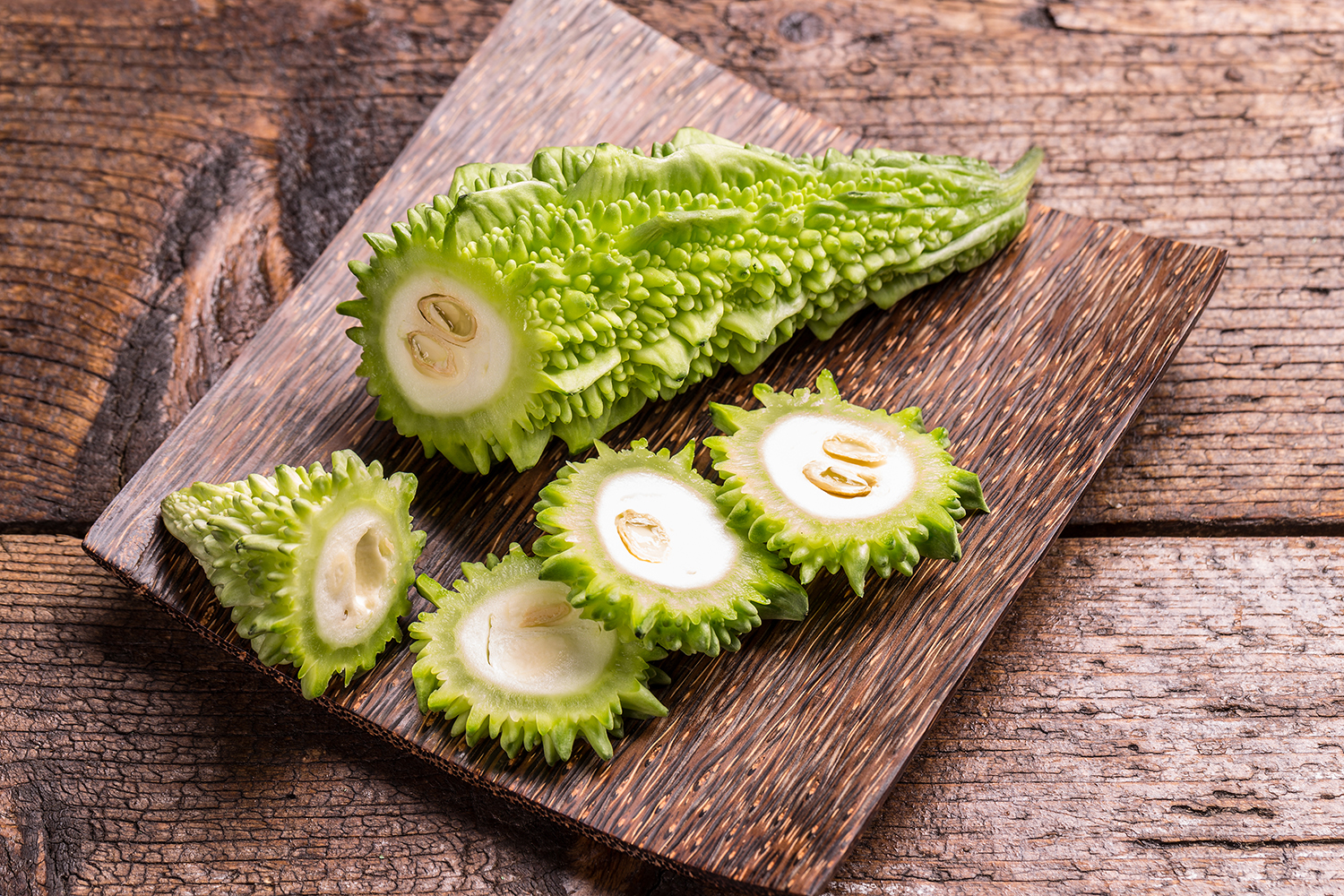Sweet news! Many plants and their extracts can help treat or prevent Type 2 diabetes.
While effective, people on antidiabetic medications should discuss the use of any herb with their healthcare practitioner.
Botanicals for Blood Sugar
Well-known botanicals with positive effects on blood sugar include:
- cinnamon
- fenugreek
- maitake mushrooms
- turmeric
Three more to add to the list are bitter melon, garlic, and gymnema.
-
Bitter Melon
Also known as ampalaya or bitter cucumber, bitter melon is available as tea, juice, powder, or capsules. It is not recommended for pregnant women.
Bitter melon reduces blood sugar and improves glucose tolerance, making it an effective supplement for people with Type 2 diabetes.
How It Works
Such individuals don’t produce enough insulin, so they have an impaired ability to convert sugar in their blood into energy in their muscles.
Exercise is part of the treatment for Type 2 diabetes because it activates the enzyme AMPK, which helps move glucose from the blood into muscles and other tissues.
In laboratory research, scientists have identified compounds in bitter melon that, like exercise, activate AMPK.
Safety
Diabetes drugs do the same thing, but they can have side effects.
“The advantage of bitter melon is that there are no known side effects,” says Jiming Ye, PhD, who was involved in the study that identified bitter melon’s glucose-mediating compounds.
“Practitioners of Chinese medicine have used it for hundreds of years to good effect.”
-
Garlic
Garlic appears to lower glucose levels and improve insulin sensitivity, but its benefits for people with diabetes may go well beyond that.
How It Works
Researchers fed garlic oil to rats with diabetes and saw beneficial changes associated with protection against heart damage.
The changes appeared to be linked to garlic’s potent antioxidant properties.
Garlic and Cardiomyopathy
People with diabetes have a significantly heightened risk of death from heart disease.
Among them is cardiomyopathy, which inflames and weakens the heart’s muscle tissue. It's a leading cause of death in people with diabetes.
A recent study in the Journal of Agricultural and Food Chemistry found that garlic oil has strong potential for preventing it.
-
Gymnema
When taken in supplement form, gymnema can help lower blood sugar after meals.
How It Works
Gymnema leaf is believed to improve insulin release and glucose uptake.




